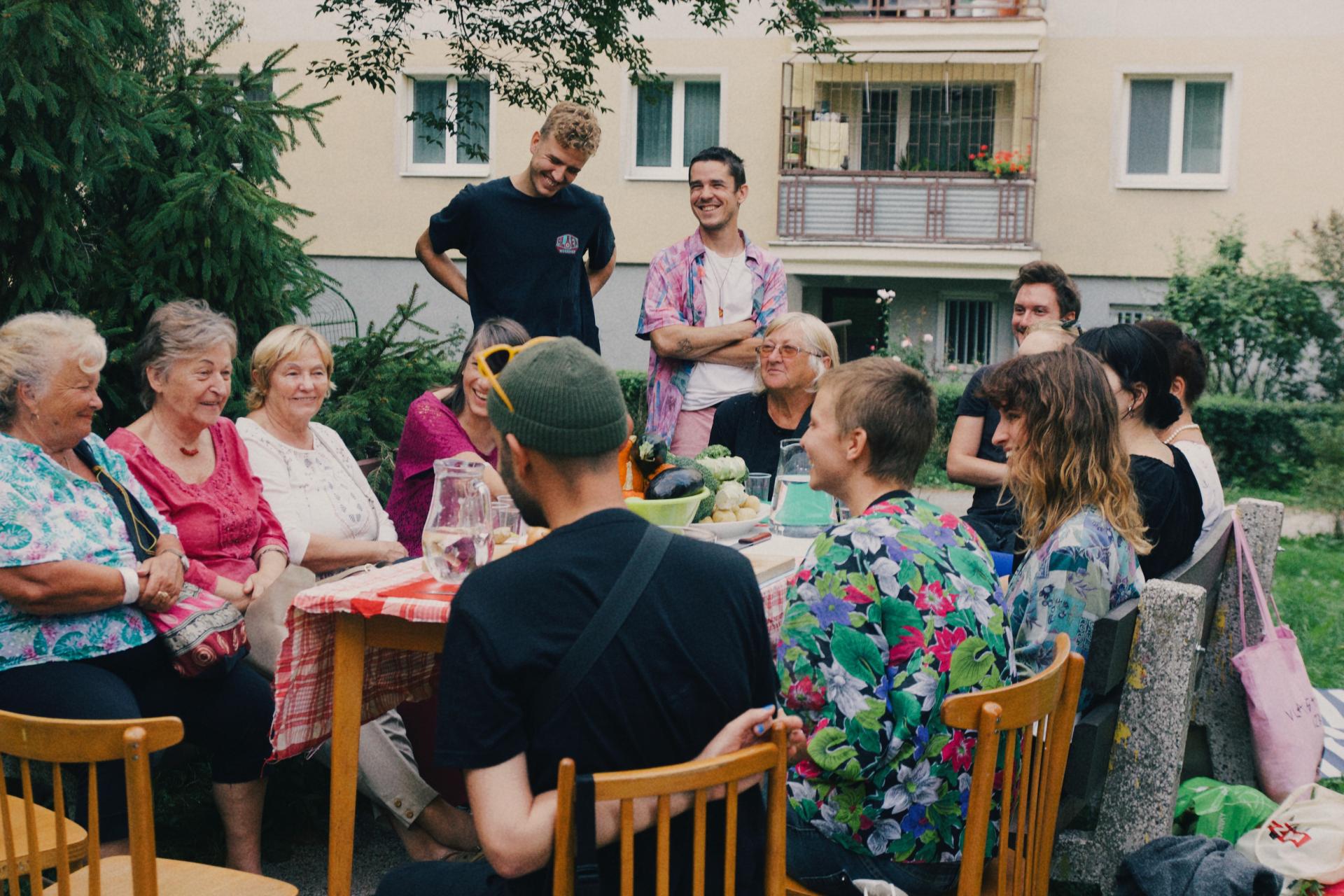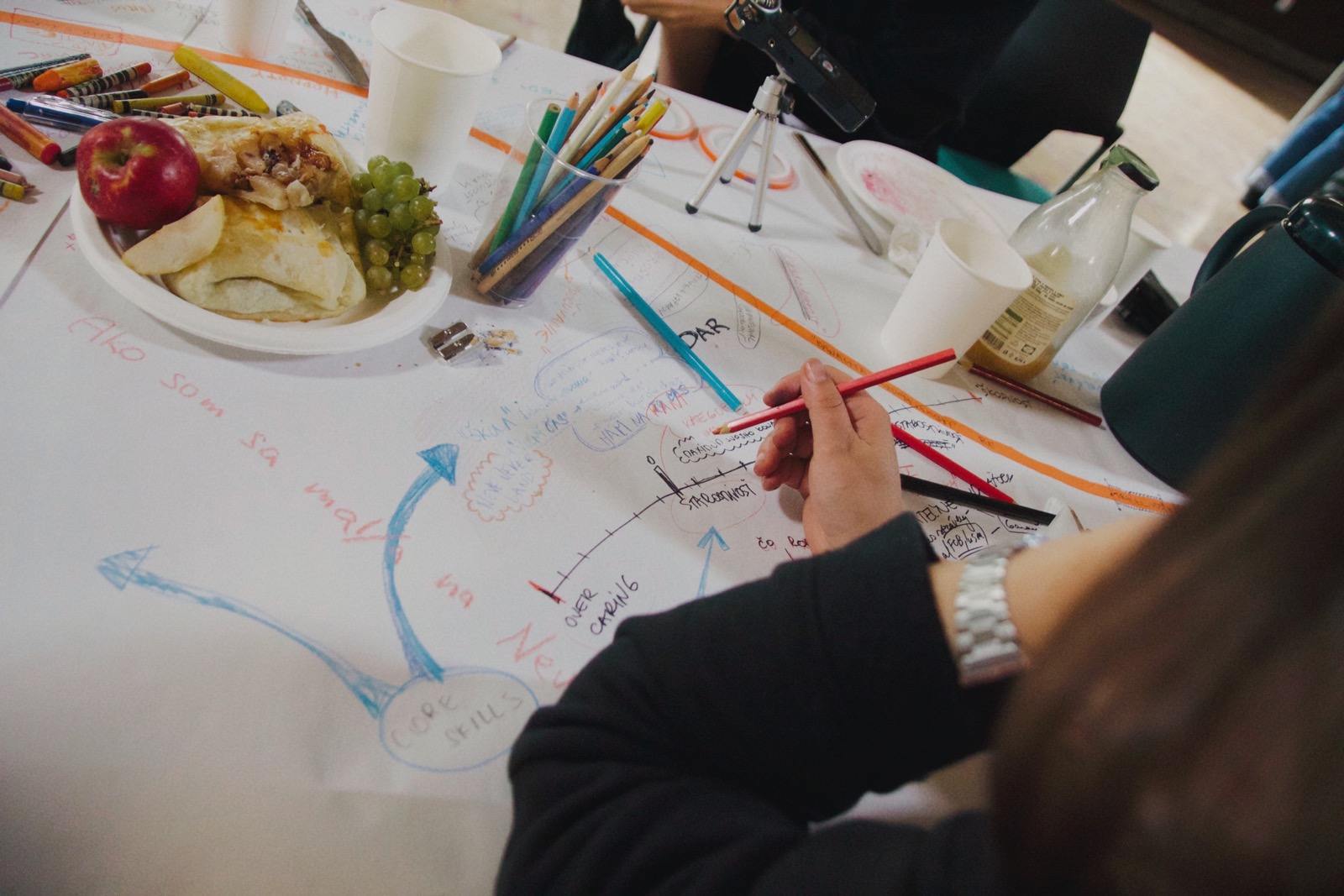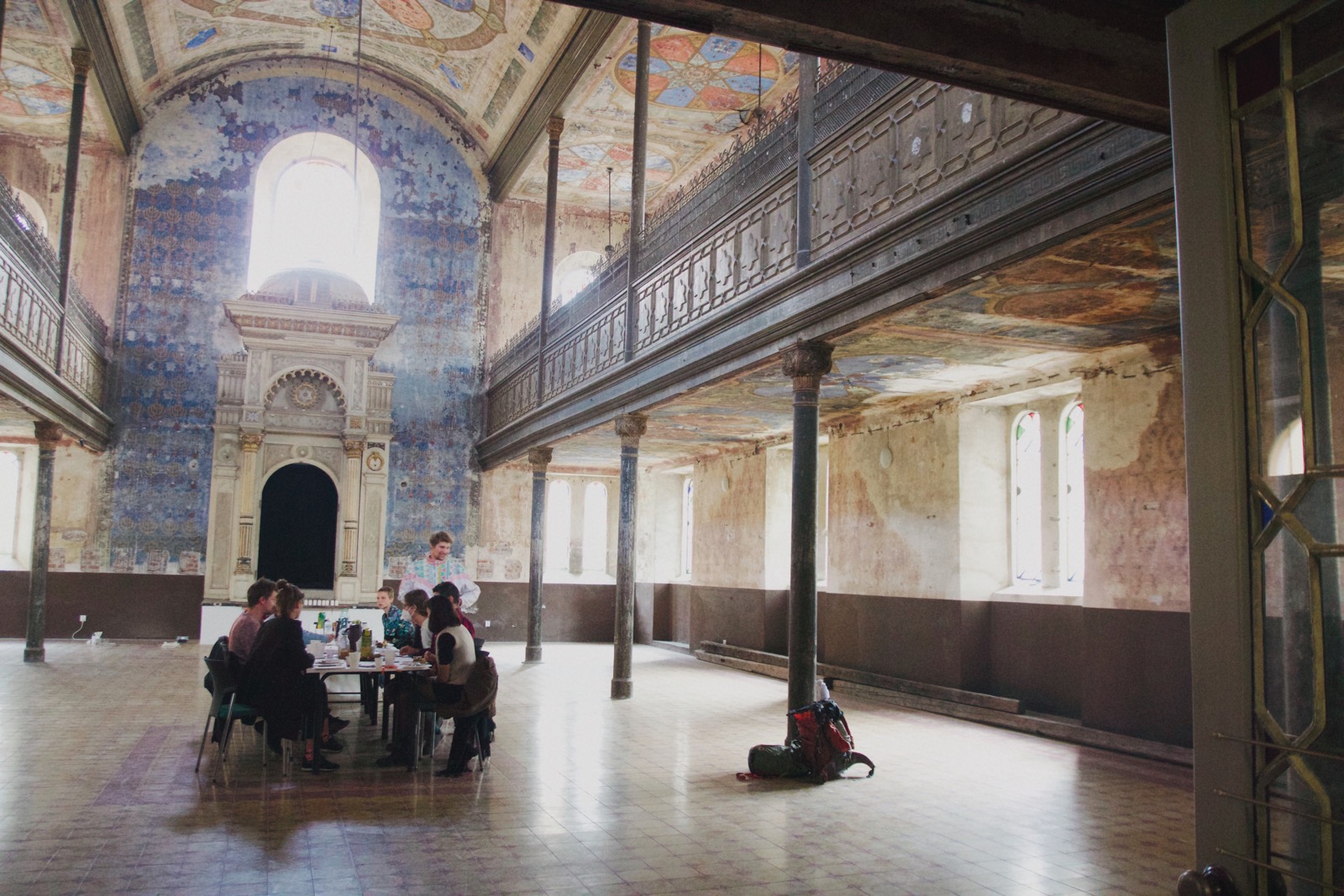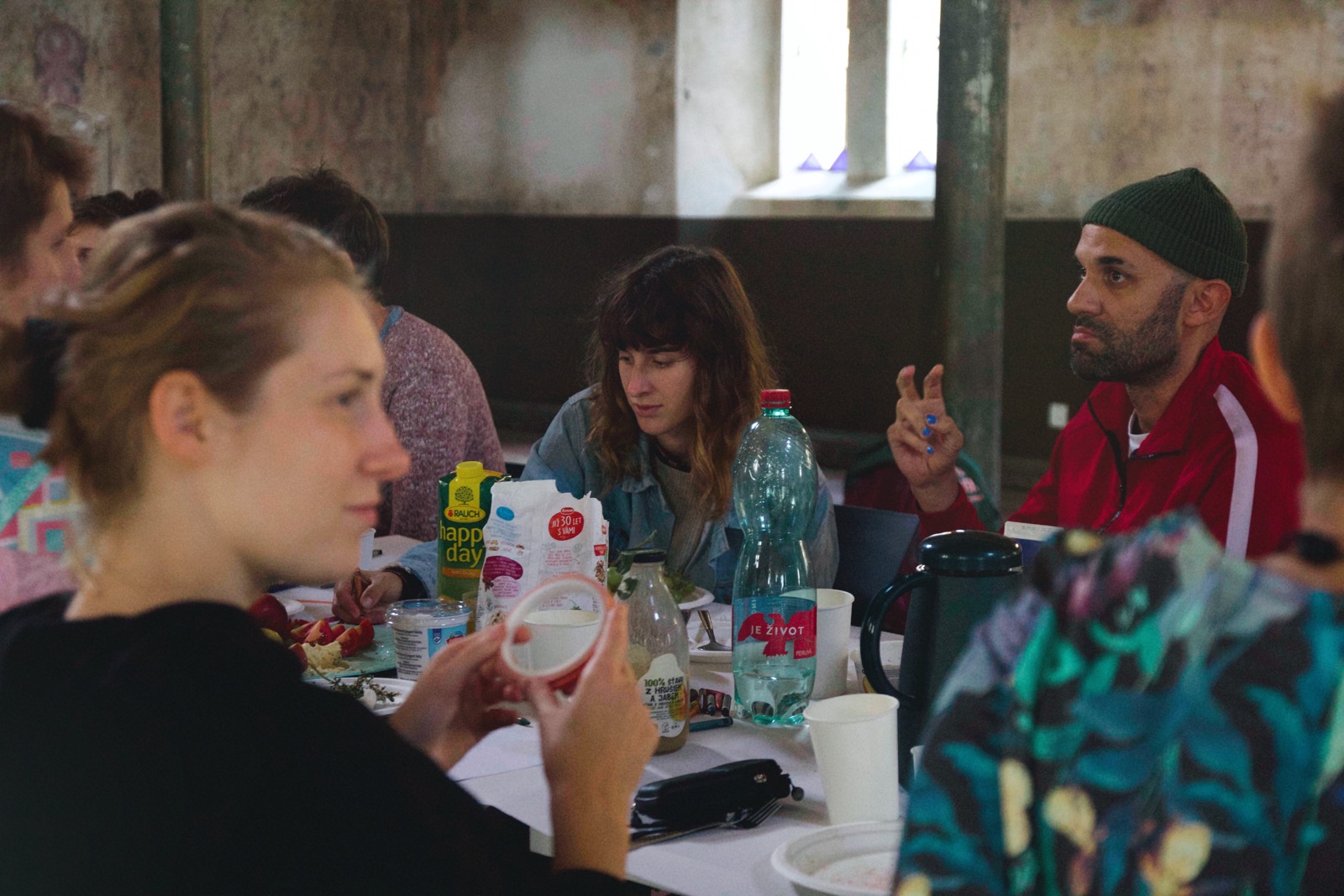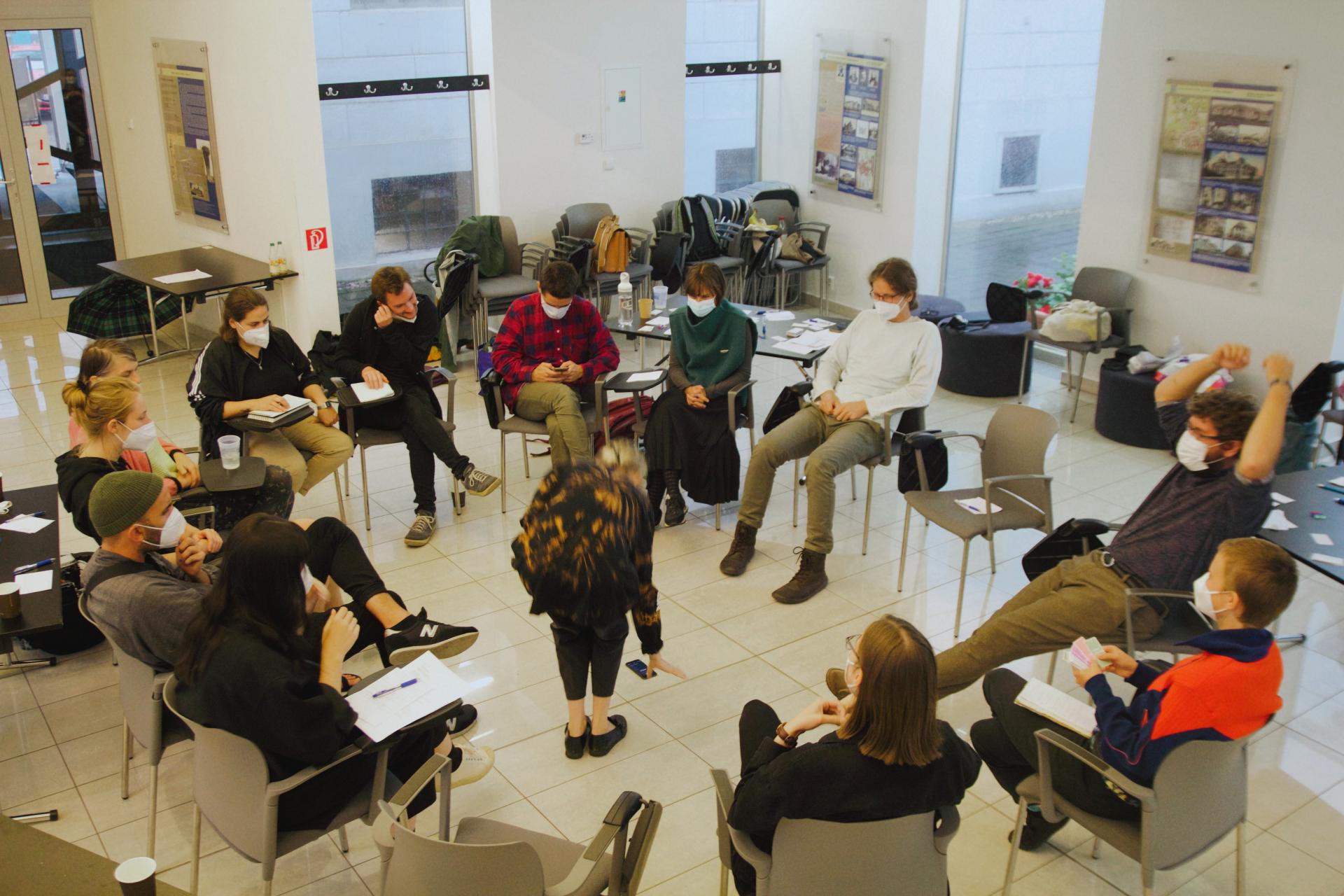Never Never School
Basic information
Project Title
Full project title
Category
Project Description
Never Never School is a unique space for dialogical learning, utopian speculation and research about cities. Never Never School designs new futures and tests and develops new collaborative forms of working and living together. Through innovative methods of mapping, speculative cartography, phenomenological research and dramatical storytelling, we create a learning and experimentation for investigation and imagination of radical alternatives. The edition of 2021 was dedicated to care as for us m
Geographical Scope
Project Region
Urban or rural issues
Physical or other transformations
EU Programme or fund
Which funds
Description of the project
Summary
Never Never School started in 2018 as an experimental format for learning and knowledge production in Kosice, Slovakia. Reaching out to international and local students and professionals in interdisciplinary environments, we have started to prototype a unique format that can be an inspiration for contemporary urban design and spatial practice in the Europe. Never Never School focuses on three goals:
- Experimental pedagogy
Taking on the format of experimental pedagogy and the excitement of discovery, we believe that we dismantle the rigid structures of proffesional positions and data collection in spatial practice and help to access the objectivity of the world through situated knowledges. Therefore, the discoveries have empowering potential and help to look at marginalized perspectives in space production.
- Generating knowledge
Through Never Never School we understand and expand the field of spatial practice as an everyday activity; For example, in 2021, the school was dedicated to the topic of a caring city. Contemporary crises - the climate, migration, pandemic - have brought our sensitivity towards elements of the world that have been interconnected, human and more-than-human actors. We imagine cities as spaces, where citizens have safe and good lives, without catastrophic impact on the environment and the planet. We understand care as Joan Tronto (1993), as a practice leading to sustainability and development of all the elements.
- Improving the urban situation in Kosice
The context of Kosice is very important in the practice of Spolka as a collective, as a studio and as researchers. Post-socialist peripheral contexts and transnational existence inspire our need to apply for ecological and feminist positions within the context of neoliberal urban structures. Looking at how the environment is commodified for development with contradiction to the shrinking post-industrial economy brought us to the thoughts of de-growth, slowness, revitalization and car
Key objectives for sustainability
- Collaboration and participation lead to inclusion
Never Never School prototypes possible alternative ways of living together with a long term impact in the city. Establishing a deeper sensibility of citizens and professionals for city-making in the context of Kosice that takes into account the urgencies of the city is one of the most important Never Never School’s objectives. In a concrete way, this means to understand the specific needs which a group of people or a community in Kosice have and think together with them how to collectively create concrete sustainable ways of living rooted in their everyday life using various participative and collaborative formats
- Sustainable methodologies
The project is tested directly in the specific context of Kosice together with the local people through collaborative and non-hierarchical workshops, site-specific interventions, collective research and public discussions in order to figure out the benefits and the consequences of any changes and help the people involved to keep the project going on. It is followed by the dissemination of the methodologies.
- Shifting planning towards marginalized and more-than-human perspectives
Never Never uses design as a tool for utopian imagination and as a means of dialogue about possible futures in order to encourage the people to use their creativity, their ability of critical thinking, to think and develop all together more sustainable, ethical and ecological ways of living. In this perspective, we always choose the methods and approaches that allow the people and non-humans to give the voice and future to the context in which they are working as it is and as it wants to be: indeed, our main tools are various forms of mapping, prototyping, designing or writing. An example of workshop from NN21 speculated about potential futures of particular technical heritage shifting perspective towards the proccesses of care as means to near to utopian vision.
Key objectives for aesthetics and quality
All the notions of our practice are built on interconnection with art and design. We deeply focus on bringing aesthetics to all our practices, being it research, workshop, participatory planning and Never Never School. For this project, aesthetics is developed in these ways:
- Aesthetics of utopia and experimentation
History of architecture and utopian studies bring us valuable knowledge in ways to foster imagination and enable thinking beyond status quo. Still, they remain often enclosed and somehow ‘patological’ (Ricoeur). Utopias we imagine are open, inclusive and accessible, as the methods we use for their narrating, such as creating speculative maps, playing or designing future oriented games, collage making or various ways of vizualizing complexity of actor network. Hence, we follow the Latour’s call for developing spatial tools and aesthetics that enable it - to redraft ways we represent space.
- Designing the experience and learning process
How we communicate and experience Never Never School has been a part of the project development. Never Never wants to collaborate and work together with various groups of people in Kosice to strengthen solidarity, believing that an understanding community is formed when all the people are experiencing exceptional and magical moments together through tolerance, open and honest discussion and friendship. For this reason, our desire is to create atmosphere which is are enjoyable and accessible to all the people involved, creating simple but incisive collaborative formats which allow people to autonomously build their own approaches and methods for solving local problems.
- Aesthetics and design of output
We use forms of exhibition and publications to communicate the outputs. The exhibitions, an spatial atmospherical and tangible experience built on artifacts. In the books we think critically towards the reading experience - switching forms of text to enable for reader to move freely as well as make the
Key objectives for inclusion
Inclusivity is in the heart of Never Never School methodology. Its main goal to create a horizontal peer-to-peer educational platform requires strong focus on accessibility, equality and creation of mutual language between the participants. The topics of inlusion are therefore present in the methods of learning as well as in various topics that Never Never School researches.
For example, the topic of 2021 edition of Never Never School was the ethics of care in cities. The stories published based on the summer schools have a goal to raise awareness towards the process of co-creation, inclusivity and affordability. The project reflected several citations where care prpinciple helps to raise inclusivity in urban structures, in terms of acknowledging inequalities and their dimension and potential methods of improving them. Furthermore, the project focused on concrete issues of e.g. hygiene, public space accessibility for diverse groups. The question of train stations as transit places that should have included design principles for various social groups. Map making and sensitivising was broadened in perspective for human and non-human actors, being part of imaginatory excercised for inclusive futures. Other workshop reflected the co-creation of public space during a cooking event in the home for elderly people. Even though the Never Never School is not performing “big activism”, it is printing out small everyday care activities that help promote equality and inclusion in urban practice.
In publications we aim for gender sensitive language and establishment of slovak alternatives to english proffesional terms to make them readable. In general, Never Never School aims to establish an open collaborative infrastructure based on a horizontal, inclusive and critical approach for sharing and creating knowledges.
Results in relation to category
As we see it, the belonging can be supported similar to the result - a publication ‘To wear a hat of care: Sensitive future planning in cities’ which concludes with a manisfesto:
How to plan caring cities?
- there is no one possible and right caring city, there might be many
- caring city is never finished, needs of people, animals, plants and buildings change, long term caring approach consists in continuous interaction and necessary change
- the value is attributed to actors in society who might not “care back”
- acknowledging inequality in relationships in care might be a way how to systematically and on individual level build more equal world
- enable existence of spaces only for being, without purpose, without function, without necessity to do or help
- maintain rules and given structures, but if necessary, be ready to work with unexpected and break the rules and structures
- be punctual and respect, but recognize that time is a rubber
- continuously reflect and five feedback
- make sure that we do not care too much nor too little
- create safe spaces for intimate needs in public spaces
- enable creation of different atmospheres fulfilling different needs of the diversity of us
- think of the far future but also work with different possibilities
- create spaces for play and support of fantasy for various groups if citizens
- enable diverse levels of communication and comprehension regardless of the level of professionality or physical predispositions
- enable diversity of meanings and functions of things
- be situated: admit own positions, subjectivity and a place from where we and on which we make our opinions
- support friedom and recognize recetsions: this freedom means the potential to refuse opinion, act, participation but also act of care
- direct: offer care for those who are lost in the freedom and who ask for help
- patientyl listen
- refuse universality and thurn back to the local. Value is not the same for each of us and therefore enable diverse forms of “rewar
How Citizens benefit
The Never Never School about caring city has been involving citizens directly in two ways:
In common workshop, we cooked together with the users of elderly home/cultural centre on fire and then ate together in order to bring the community together and discuss the notions of care and public spaces. The event was succeeded by putting a bench that consisted of the materials used for cooking, the iron plate. The point in interaction was mainly built on human interaction and sensitivization in intergeneraional relations.
The second position sensitivisation for utopian thinking towards the civil servants in Košice. The target group of the activity was aimed at bureaucrats, to learn to practice the speculative exercise, be able to think outside of box and try to think unplanned futures outside of status quo.
Never Never School believes that education has means for community creation as well as a community can form an education. This means firstly try to understand what is really missing in the context we want to work in order to run various alternative educational projects for directly engaging citizens and local people.
- The development of the awareness of what spatial practice is and could be in order to establish a deeper sensibility of citizens and professionals for city-making in the context of Kosice which takes into account the urgencies of the city.
- The creation of new knowledge together with all the people involved which erases from collectively imagining possible futures and testing them in a collaborative safe environment;
- The connection of the concrete Kosice case studies to the global discourse through the various topics, expanding and challenging the field on the different topics with Kosice’s perspective. Then, share results, feedbacks and experiences through exhibitions, publications, talks, lectures and public events and dissemination of knowledge in journals.
Physical or other transformations
Innovative character
Regarding the innovation in urban design, project brings a complete alternative discourse that reconstructs the method of planning to smaller, sensitive, case-relevant slow methods that bring attention to the human needs, practice more equal participation of citizens and help to include more-than-human perspective in order to plan with more sensitivity to the environment. With activities and experimental safe space without strict control, mistakes are allowed and innovation is the result..
In regards to co-creation and inclusion, the project brings innovaiton in testing and prototyping ways how to collaborate with diverse groups of people and non-humans. Chosing adequate language and helping them react upon the vision in a utopian level leads to finding relatable feedback and bringing the most appropriate solutions. For this reason, this project aims to build mutual trust and confidence in the process with all the participants through sincere communication, open mind, and feedback. The collection of knowledge is not reduced only to rational and objective perceptions but is complemented with individual feelings.
Moreover, Never Never School is an innovation in education. It creates a platform that nurtures peer-to-peer education and collective experience as a whole. Compared to other mainstream pedagogical projects related to spatial practice, Never Never School erases the boundaries of scientific disciplines, and builds space to move freely between them, trying to look for a common language and vocabulary and developing respectable relationships between participants, in order to overcome their backgrounds’ differences. Thus, letting the people involved to freely choose their own direction, method and form in order to open the learning situation to the new unconventional perspective, is another fundamental aspect of Never Never School’s educational approach.
Learning transferred to other parties
The transfer of knowledge has been a part of the philosophy of the Never Never School. All the materials created through workshops have been analyzed and translated into stories that report the methods in a narrative format, accessible for wider audience. Moreover, the essays document the tools used and final book also sums up the necessary manifesto for caring city. The book is called Taking the hat of care. Sensitive planning in the future cities (Grešáková, L., Tabačková, Z., Mravčáková, V. (Eds), NASADIŤ SI KLOBÚK STAROSTLIVOSTI Citlivé plánovanie budúcnosti v mestách. Published by Spolka 2022).
One of the outputs is also the video essay, relating to the workshops and what has happened. The book is a tool for urban practicioners in all disciplines for free. During the workshops, there were also public lectures and public events that engaged professionals and wider publics in the topic of care and caring city (Mestoláska lecture in the local cinema).
The Never Never School works with artistic tools, like videos, exhibitions and books in order to create the output that translates the research and experimentations of speculations and utopias to wider audiences. The book from 2019 edition was published: Grešáková L., Tabačková Z., Mapping the In Between. Spolka 2020. It reports on the mapping techniques and experimental cartography. The research from 2019 was also published in academic journal (as an output of the conference Unplanned City https://unplannedcity.sav.sk/sections/#mapping-with-care-as-an-outline-for-post-neoliberal-architecture-methodologies, Grešáková, L., Tabačková, Z., Révészová, Z.. (2020). Mapping with care as an outline for post neoliberal architecture methodologies – tools of the Never-never school Architektura a Urbanizmus, Vol 54, N.1-2 https://doi.org/10.31577/archandurb.2020.54.1-2.1 ) Never Never School has been presented as a method on various lectures of Spolka members (TU Munchen, TU Berlin, ČVUT Pr

